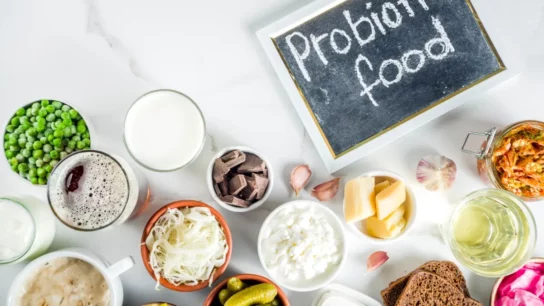Introduction
Gluten-free diets have gained popularity in recent years, whether due to celiac disease, gluten intolerance, or personal preference. Fortunately, there are numerous gluten-free grains available that offer a wealth of nutrients and health benefits. In this comprehensive guide, we will delve into eight gluten-free grains that are not only delicious but also super healthy additions to your diet.
Quinoa
Quinoa is a pseudograin that is naturally gluten-free and packed with nutrients. It is a complete protein, containing all nine essential amino acids, making it an excellent plant-based protein source for vegetarians and vegans. Quinoa is also rich in fiber, vitamins, minerals, and antioxidants, promoting digestive health, satiety, and overall well-being.
Brown Rice
Brown rice is a staple in many gluten-free diets and offers a range of health benefits. It is a good source of complex carbohydrates, providing sustained energy levels and supporting stable blood sugar levels. Brown rice also contains fiber, vitamins, and minerals, including magnesium, which is essential for heart health and muscle function.
Millet
Millet is a gluten-free ancient grain that is highly nutritious and versatile. It is rich in protein, fiber, and antioxidants, which support digestive health, blood sugar regulation, and immune function. Millet is also a good source of magnesium, phosphorus, and manganese, important minerals for bone health and metabolism.
Buckwheat
Despite its name, buckwheat is not a wheat grain and is naturally gluten-free. It is high in protein, fiber, and essential nutrients like iron, magnesium, and zinc. Buckwheat contains antioxidants like rutin, which may help reduce inflammation and improve heart health. It is commonly used in gluten-free pancakes, noodles, and porridge.
Amaranth
Amaranth is another gluten-free pseudograin that is nutrient-dense and versatile. It is high in protein, fiber, vitamins, and minerals, including calcium, iron, and phosphorus. Amaranth contains lysine, an essential amino acid that is often lacking in other grains, making it a valuable addition to vegetarian and vegan diets.
Teff
Teff is a gluten-free ancient grain native to Ethiopia and is gaining popularity worldwide for its nutritional benefits. It is rich in protein, fiber, and essential minerals like iron and calcium. Teff is also a good source of resistant starch, a type of fiber that supports digestive health and may help regulate blood sugar levels.
Sorghum
Sorghum is a gluten-free grain that is widely consumed in Africa and Asia. It is rich in antioxidants, including phenolic compounds and flavonoids, which have been linked to various health benefits, such as reduced inflammation and improved heart health. Sorghum is also high in fiber, protein, and vitamins, making it a nutritious addition to gluten-free diets.
Teff
Teff is a gluten-free ancient grain native to Ethiopia and is gaining popularity worldwide for its nutritional benefits. It is rich in protein, fiber, and essential minerals like iron and calcium. Teff is also a good source of resistant starch, a type of fiber that supports digestive health and may help regulate blood sugar levels.
Frequently Asked Questions (FAQs)
Are gluten-free grains healthier than gluten-containing grains?
Gluten-free grains can be part of a healthy diet, but their healthfulness depends on various factors such as nutrient content, processing, and individual dietary needs. Some gluten-free grains, like quinoa and amaranth, are highly nutritious and offer numerous health benefits.
Can I lose weight on a gluten-free diet?
While eliminating gluten-containing grains may lead to weight loss for some individuals, it is not a guaranteed outcome. Weight loss depends on overall calorie intake, dietary choices, physical activity levels, and individual metabolism. It’s essential to focus on balanced meals that include a variety of nutrient-dense foods, including gluten-free grains.
Are gluten-free grains suitable for people with celiac disease?
Yes, gluten-free grains are safe for individuals with celiac disease, as they do not contain gluten proteins that trigger an immune response in those with the condition. However, it’s important to choose certified gluten-free grains and avoid cross-contamination with gluten-containing foods to prevent adverse reactions.
Can gluten-free grains help improve digestive health?
Yes, gluten-free grains like quinoa, brown rice, and sorghum are rich in fiber, which supports digestive health by promoting regular bowel movements, preventing constipation, and nourishing beneficial gut bacteria. Including a variety of gluten-free grains in your diet can contribute to overall digestive well-being.
Are gluten-free grains suitable for people with gluten sensitivity?
Yes, gluten-free grains are safe for individuals with gluten sensitivity, as they do not contain gluten proteins that can trigger adverse reactions in those with non-celiac gluten sensitivity (NCGS). Including gluten-free grains in the diet can help alleviate symptoms such as bloating, gas, and abdominal discomfort in people with NCGS.
Can I substitute gluten-free grains for gluten-containing grains in recipes?
Yes, gluten-free grains can often be substituted for gluten-containing grains in recipes with some adjustments. For example, quinoa or brown rice can replace wheat or barley in pilafs, salads, and stir-fries. Experimenting with different gluten-free grains can add variety and nutritional value to your meals.
Are gluten-free grains suitable for a low-carb diet?
While many gluten-free grains are higher in carbohydrates, some options like quinoa and amaranth are lower in carbs compared to traditional grains like wheat and rice. Individuals following a low-carb diet can incorporate smaller portions of gluten-free grains into their meals while focusing on other low-carb foods like vegetables, proteins, and healthy fats.
Conclusion
Gluten-free grains offer a diverse array of flavors, textures, and nutrients, making them valuable additions to a balanced diet. By incorporating a variety of gluten-free grains like quinoa, brown rice, millet, and sorghum into your meals, you can enjoy delicious and nutritious foods while supporting your overall health and well-being.
- The Growing Demand For THC Beverages Among Gen Z - May 31, 2025
- Skin Pen Microneedling Near Albury, Surrey - May 31, 2025
- Thc Soda In Illinois IL - May 30, 2025




